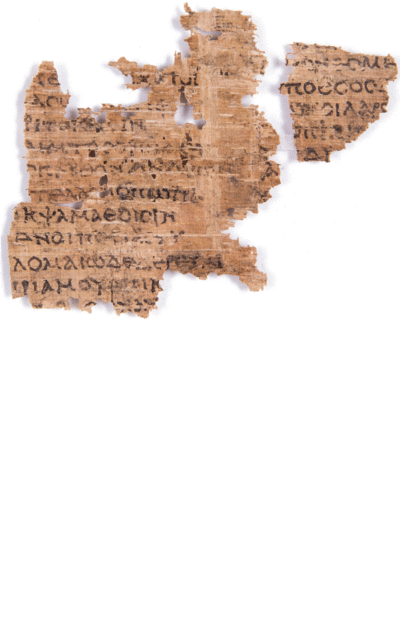July 6: Ancient Papyri and Other Very Early Manuscripts and Miniatures at Bloomsbury
- by Thomas C. McKinney

Highlighted lots from Bloomsbury's Western Manuscripts and Miniatures
It doesn’t happen often that I’m tasked with previewing an auction in which I struggle to find a single lot dating from later than the 16th century. Yet this is the case for Bloomsbury Auctions’ sale of Western Manuscripts and Miniatures, which takes place July 6th in London. Of the 112 lots included in the sale, I found four and a half (for one lot the date is unknown and listed as 16th or 17th century so I’m counting that as a half) made or written after 1600. A few of the lots are extremely early manuscripts, dating from as early as the second or first century BC. Yes, before Christ. These ridiculously early writings come from the collection of Christiane Desroches Noblecourt (1913-2011), an Egyptologist who went on to join the Egyptian department of the Louvre. If you collect this type of material, I’m certain you know more about it than I do. And if you want to collect this type of material, as it is in all collecting, knowledge is power; seek it. And here’s a friendly reminder: with the British pound at its lowest level in decades versus the American dollar, now is a great time for American collectors to bid aggressively in British auctions. For this sale, I will provide a brief preview of some highlight lots.
One of the earliest items in the sale is lot number 1. Its estimate is second highest in the sale, at £30,000-50,000. The Noblecourt Homer papyrus, written in Egypt, probably in the second century BC, contains lines from The Illiad. These two fragments from a manuscript papyrus scroll are some of the earliest surviving witnesses to the text that is a staple in classrooms worldwide. Not only is this writing ancient, but it is also meaningful. Bloomsbury states that while other literary papyri come to market from time to time, Homeric papyri are the rarest of the rare. Only three other fragments have entered the rooms in living memory. This is one hell of a conversation piece for display in your living room (of course protected by security and preservation systems that will probably cost more than the fragments themselves).
The Noblecourt collection includes two other Papyrus fragments, lots 2 and 3. Lot 2 in particular is also interesting, being parts of a speech by Dinarchus from the trial of Harpalus, the treasurer of Alexander the Great accused of embezzling large amounts of money from the empire. Speeches by Dinarchus are among the rarest of Greek Classical works in manuscript, and this example is the oldest known. Dinarchus’ speech fragment bears an estimate of £15,000-20,000.
The honor of carrying the highest estimate in the sale goes to an item thirteen to fourteen centuries older than the Papyri fragments. Lot 45 is a 127 leaf manuscript on parchment containing books from a Hebrew bible in codex form, dated to somewhere between the second half of the 11th and the 12th centuries. It is among the oldest on record for Hebrew manuscripts. These works are remarkably rare, as Jewish populations of the time held their Bibles in reverence and would bury them when they became worn out or damaged. This exceptional rarity is estimated £80,000-120,000.
The fourth and final lot of this auction preview is a Book of Hours, written and illuminated in the Low Countries circa 1430-1440. Consisting of 273 leaves and eighteen full page miniatures, the exceedingly beautiful work has been attributed to a group of southern Netherlandish artists first identified as the “Master of the Gold Scrolls” by F. Winkler in 1925. This copy has been in private hands, passed down by descent for several generations, and has an estimate of £25,000-35,000.
Bloomsbury’s sale of Western Manuscripts and Miniatures will take place July 6, 2016, at 11 AM British Summer Time at Bloomsbury House in London. For more information, please refer to the Bloomsbury website. The sale’s full catalog is available online here.